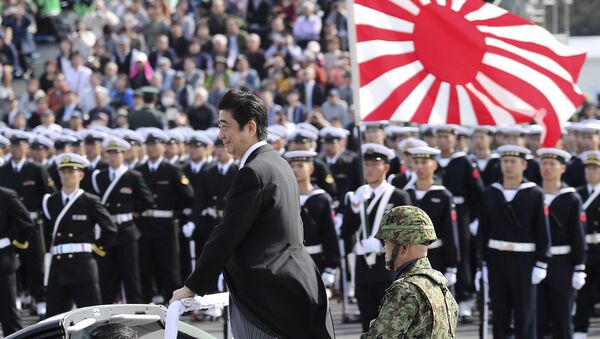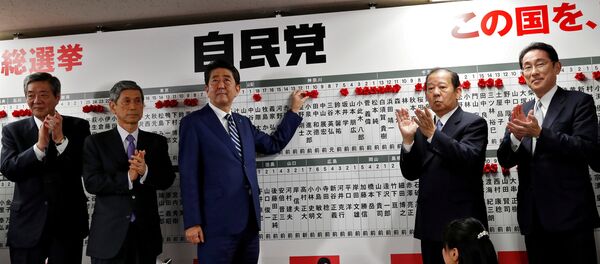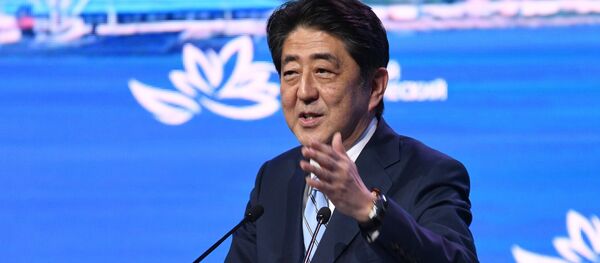On Monday, Abe vowed to see the constitution amended to remove Article 9, which reads "the Japanese people forever renounce war as a sovereign right of the nation and the threat or use of force as means of settling international disputes." The article adds that Japan may not maintain "land, sea, and air forces, as well as other war potential."
The 1947 constitution was written at a time when Japan was utterly ravaged following World War II, not to mention under US occupation. The belligerent behavior of Imperial Japan caused the Americans to pressure the feeble post-war government into the strict restrictions on Japanese use of military force.
But that was 70 years ago. In 2017, Japan has the eighth-highest military budget in the world, with almost 250,000 personnel and a robust and sophisticated navy. The very existence of this force also violates the letter of Article 9, which Tokyo skirts by claiming that the purpose of this military is to defend Japan from attack, not declare war.
On the surface, an amendment seems doable. Abe's party, the Liberal Democrats (LDP), control an absolute majority in the National Diet's House of Representatives and are part of a coalition government in the less powerful House of Councillors.
But it's no small feat to amend the Japanese constitution. It requires a two-thirds majority in both houses of the Diet, then an absolute majority of voters during a referendum. In the 70 years since it was adopted, the constitution has never once been successfully amended.
Abe said earlier in 2017 that he wished to see the constitution amended by 2020, but he has walked back that comment, claiming that his new plan is "not bound by any schedule."
While the LDP's commanding presence in the Diet makes it quite feasible to gain the two-thirds majority necessary to amend the constitution, the referendum is another story. A poll by Asahi earlier in October found that 55 percent of the Japanese public opposed repealing Article 9.
Shigeru Ishiba, an LDP member and one of Abe's economic ministers, has been a leading voice in amending the constitution to allow Japan to declare war, but he also said that it would prove "extremely difficult" to get the population behind such an initiative.
Abe, who has been prime minister since 2012, has been noted for his militaristic and nationalist sympathies. In 2015, the LDP passed a series of laws that would allow the Japanese Self Defense Forces to participate in foreign conflicts. The legislation was unpopular both in Japan and abroad, with some legal scholars calling it unconstitutional.
On Sunday, the LDP came out victorious in a snap election called by Abe, who retained his prime ministership as well as his party's supermajority in the Diet. However, the LDP's success has been attributed less to Abe's popularity (his approval rating sits at about 39 percent, according to Japan Macro Advisors) and is more due to the sloppy, disunified state of the LDP's rival parties. The election also had a very low turnout, the second lowest of any post-World War II election.
The new opposition party, the Constitutional Democratic Party of Japan (CDPJ), ran on a platform of rejecting the amendment of Article 9, as well as liberal policies like replacing nuclear power plants with renewable energy. Pacifist factions remain influential on the Japanese left, and will ardently oppose any attempt to kill Article 9.
Another party that has been skeptical about repealing Amendment 9 is Komeito, the party that the LDP coalitions with in the House of Councillors. A socially conservative Buddhist party, Komeito has been cool on any amendments to the constitution, and Abe has run into difficulty trying to find a way to secure their support.
Security challenges have also been a theme of Abe's prime ministership. North Korean leaders and spokesmen have repeatedly threatened to unleash their nuclear arsenal on Japan in 2017, and Japan has repeatedly butted heads with China over disputed territory in the East China Sea.







